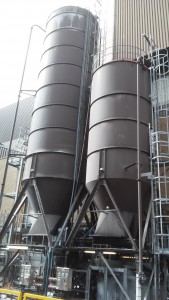
1. Consultation on Environment Agency charges from 2015
This consultation, which closes on November 20, sets out Government’s charging proposals for the Environmental Permitting, Abstraction and EU Emissions Trading Schemes.
See the consultation here: EA consultation documents
2.Academy of Medical Royal Colleges’ report on costs savings in the NHS
A new report issued by the Academy of Medical Royal Colleges has identified nearly 2bn pounds worth of cost savings the NHS could be making if it provided more appropriate care. The report entitled Protecting resources, promoting value: a doctor’s guide to cutting waste in clinical care, provides a framework for doctors to think critically about waste from a clinical perspective and provides examples of doctors improving the value of health care by reducing waste. It looks at the different types of clinical waste and covers how doctors should be leaders in its reduction. It looks at everything from reducing physical waste, such as medicines, to saving NHS resources, estimating that around 20 percent of mainstream clinical practice brings “no benefit to the patient”, as there is widespread overuse of tests and interventions.
Using data obtained by the National Institute of Clinical Excellence and first-hand accounts from doctors, the document reveals:
- improving doctor’s awareness of the possibility of adverse drug reactions (ADRs), particularly among the frail and elderly could save the NHS £466m a year. One analysis showed that over half of the patients being treated could safely have their medication reduced or stopped altogether. ADR’s account for 4 in every 100 hospital bed days
- the simple measure of increasing the frequency of ward rounds means patients can often go home sooner. At the Royal Liverpool University hospital ward rounds were increased from two a week to twice daily. It reduced bed occupancy by 7.8 percent
- maximising the use of operating theatres and managing operating schedules better, saved the University Hospital Bristol Trust £2m a year. There are 160 acute trusts in England.
The report recognises that operating at 100 percent efficiency, round-the-clock would be impossible in an organisation as large and of necessity, as flexible as the NHS, but calls for a change in culture by England’s 150,000 doctors, arguing they have an ethical duty to protect resources and promote value.
It suggests they should ask not simply if a treatment or procedure is possible, but, whether it provides real value to the patient and genuinely improves the quality of their life or their prospects for recovery.
Academy Chair Professor Terence Stephenson said: “Maintaining NHS services in the future depends on doctors ensuring the best use of resources today. Quality of care is a doctor’s prime concern. But, delivering quality care and promoting value are really two sides of the same coin. One doctor’s waste is another patient’s delay; potentially it could be another patient’s lack of treatment.”
Read the report here: Academy of Medical Royal Colleges’ report
3. CIWM 2014 award winners (including two University of Northampton students) announced
The 2014 winners of the CIWM Awards have been unveiled, representing the pinnacle of best practice and innovation in the waste and resources industry. Over 400 attendees gathered at the ceremony held at the London Marriot, which was hosted this year by TV presenter and adventurer, Helen Skelton, who’s widely known for presenting BBC’s Blue Peter and Countryfile.
The CIWM Awards recognise the achievements and innovations made by companies, local authorities, professionals and academics, and cover all aspects of the industry – from waste and resource management, to sustainability and energy recovery.
Read about the winners here: CIWM 2014 award winners (including John Dururu and Rob Reinhardt)
4. Scotland’s 2012 waste arisings revealed
Newly compiled data has been published by the Scottish Environment Protection Agency (SEPA) that provides a breakdown of all waste generated and managed in Scotland during 2012. The data brings together information on the waste collected from all sources, such as commercial enterprises, the construction industry and households, including detailed information on the waste generated, recycled and disposed to landfill.
Publicly available on the Scotland’s Environment website, the data is presented for the first time through the new interactive Waste Discover Data tool. It allows users to analyse and display data in greater detail, while filters are available to isolate key information by waste management method, origin, hazard, location and specific waste material.
See the tool here: Scotland waste arisings tool
5. Green Investment Bank has invested more than £200m in waste projects
More than £200 million has been invested by the Green Investment Bank (GIB) in waste projects since the Bank opened two years ago. The GIB was set up with around £3 billion of government funding in 2012 and identified waste as one of its priority sectors. A specific team was set up within the GIB aimed at identifying investment opportunities within the waste sector. The GIB’s waste and bio-energy team has funded a series of projects in the sector, of which the majority are energy-from-waste and anaerobic digestion projects. The Bank’s aim is to attract private funding for projects, with GIB funding intended to act as an incentive for private sectors to step in. To date the GIB has invested a total of £1.6 billion in 37 different projects across all sectors.
 1. Green Investment Bank takes next step towards privatisation
1. Green Investment Bank takes next step towards privatisation